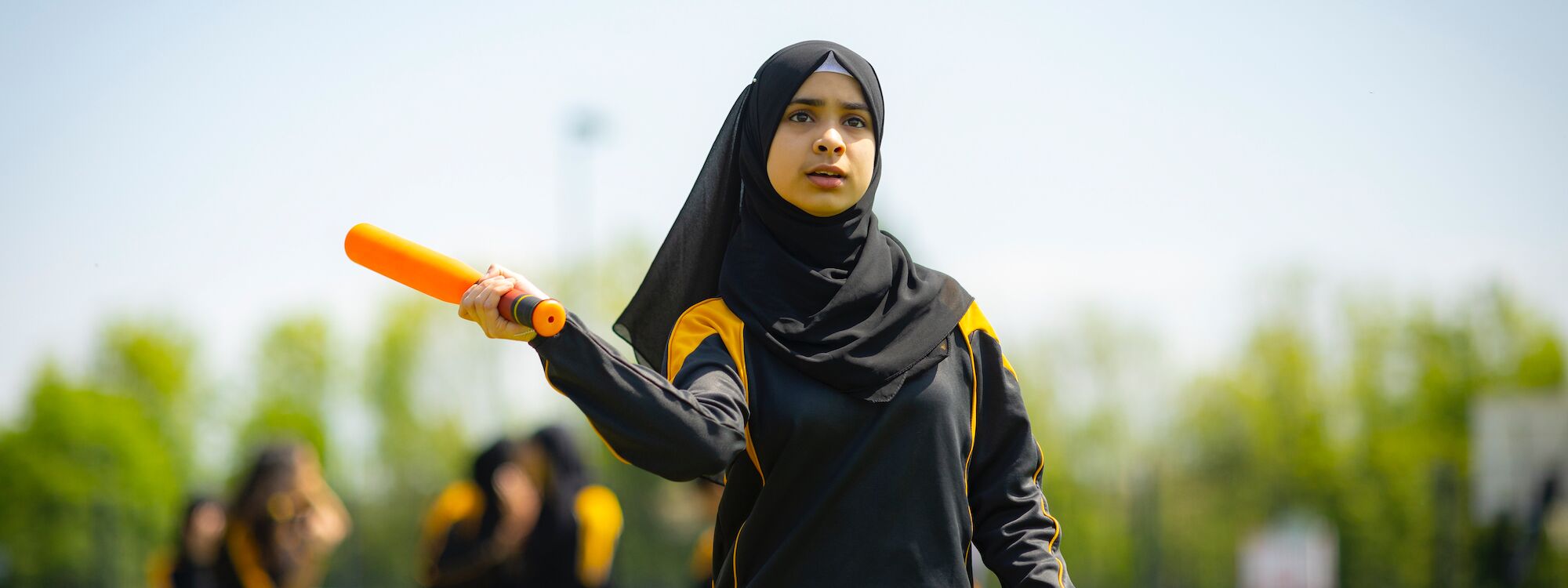- Home
- Curriculum
- Subjects
- Physical Education
Physical Education
Back to SubjectsVision
At MEA Central, our Physical Education curriculum is driven by a commitment to fostering a lifelong love of sport and physical activity. We aim to empower every student to understand and develop their physical literacy, inspiring them to lead active, healthy lives both now and in the future.
Our high-quality, carefully sequenced curriculum challenges all students to strive for excellence in physically demanding activities and competitive sport. Through engaging lessons, we nurture kind, conscientious citizens who demonstrate leadership, teamwork, confidence, resilience, positive competitiveness, independence, and organisation.
Physical Education is a powerful vehicle for living out the MEA Central values:
- Achievement. Through physical effort and personal progress
- Participation. By engaging in a broad and inclusive range of sports
- Citizenship. By showing respect, empathy, and a positive attitude towards others
Our curriculum is built around three big ideas that underpin learning across all key stages and align with the National Curriculum:
- Developing Motor Competence
- Understanding Rules, Strategies, and Tactics
- Promoting Healthy Participation
We support students in analysing and improving their performance through our KNOW, SHOW, GROW framework:
- KNOW. Substantive knowledge: understanding skills, rules, and positions
- SHOW. Procedural knowledge: demonstrating skills with accuracy and control
- GROW. Personal development: applying learning across contexts and building leadership, coaching, communication, and teamwork
At the heart of our curriculum is a belief in the power of communication. We are committed to developing articulate, confident, and respectful communicators. Every student, regardless of background, deserves the opportunity to meet others as equal and to be able to speak clearly, listen actively, and express themselves with purpose and pride.
Participation in sport is a universal language. One that unites, builds friendships, and opens doors to future opportunities. Whether leading a warm-up, discussing tactics, giving feedback, or engaging in respectful debate, students are supported to find their voice and use it well.
We aim for every learner to:
- Speak with clarity and confidence in competitive and cooperative contexts
- Use subject-specific language fluently to explain, instruct, and reflect
- Listen actively and engage thoughtfully, showing empathy and respect
Key Stage 3 Overview
Our Key Stage 3 curriculum embeds the three big ideas through a range of sports including those where students must overcome opponents in direct competition, those where they need to improve their individual performance and technique and outdoor adventurous activities.
Motor Competence
In Year 7 a baseline assessment will be completed so any gaps in knowledge from Key Stage 2 can be identified and planned for in the upcoming year. If a student cannot skip for example, then they will be unable to dodge a defender in football or netball because they will be unable to change direction quickly by moving lightly on the balls of their feet. This is why motor competence is important not only for skills and techniques in the sports being taught but also for their fundamental movements.
Rules, Strategies and Tactics
Tactics and strategies in invasion sports are very similar as they have the same principles of attack and defend. Moreover, net games also have similar tactics when moving an opponent around the court and exploiting their weaknesses. Students become more component at this as they progress through the curriculum and they build on the knowledge they gain by using transferable skills throughout a range of sports. They become familiarised with the rules of various sports and therefore gain an understanding of how they should be played. This also make watching the sports more enjoyable and give them the confidence to play the sport not only in lessons but in the wider world.
Healthy Participation
Students begin to understand their bodies, how it responds to exercise and be able to identify muscles. As well as understand different methods of training to improve components of fitness, undergo fitness tests and be able to competently lead a warm up to other scholars. They also understand the importance of rest and recovery and how they could exercise at home or engage in sport and physical activity outside of school.
Year 7 Curriculum
Year 8 Curriculum
Year 9 Curriculum
Key Stage 4 Overview
At Key Stage 4 all students take part in core PE lessons with our aim being that students find a passion for physical activity that supports their well-being as they go through life. The core PE curriculum is designed to build on the foundations of Key Stage 3 whilst giving students the opportunity to be more independent and have some control over their learning. Students are expected to demonstrate independence by officiating, leading warm-ups and cool downs, organising skills practices and taking charge of setting up and putting away equipment.
At Key Stage 4 some students choose to take the Cambridge National Sports Studies qualification. The aims are to:
- Understand and apply the fundamental principles and concepts of Sport Studies
- Develop learning and practical skills that can be applied to real-life contexts and work situations
- Develop independence and confidence in using skills that are relevant to the Exercise, Physical Activity, Sport and Health sector and more widely
- Understand topical and contemporary issues in sport, including; why people do and do not participate in sport, the promotion of ethics and values, the roles of National Governing Bodies and high-profile events have in sport, as well as how technology is used within sport
- Develop skills as a performer in two different sporting activities and learn how to lead sporting activity sessions
- Create a plan, write and evaluate an activity session, to further develop leadership skills
- Analyse their own performance to help improve themselves and their skills in sport
Explore the relationship that media has with sport and understand how linked they are. The relationship to real world examples and the different ways in which sport and the media represent each other will be applied.
